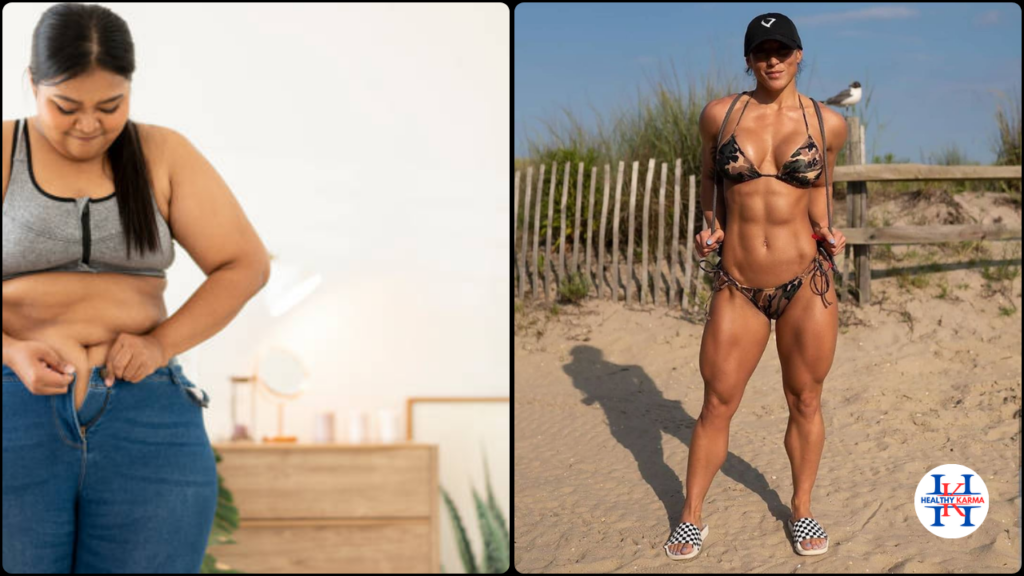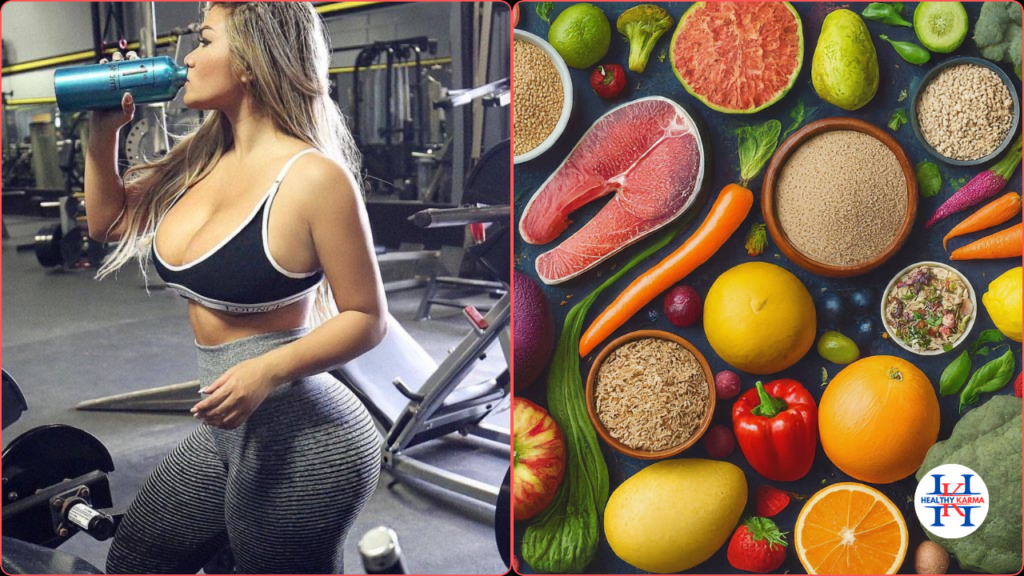

GET SUMMER BODY READY: 5 KILLER WAYS TO A HEALTHY SUMMER BODY
What is the first image that the mind invokes when we hear the word “Summer”? It is but obviously the sun, which is the source of heat and rising temperature. Then come the images of cool, sandy beaches and the swimsuit that you’ve always been wearing on the beach while on a summer vacation with the family.
But let’s be honest, summer can also bring about a touch of insecurity as far as the body image is concerned. Are we really “Beach” ready as we used to be in the days gone by? Here’s the truth: Getting summer body ready isn’t about achieving some unrealistic ideal. It’s all about celebrating the season and feeling good in your own skin.
So, instead of asking if your body is “summer ready,” let’s ask a different question: Are you ready to adopt a healthy lifestyle this summer? Because that’s the long-term recipe for feeling great all year round.
The good news is that getting healthy does not need a major lifestyle shift. It is about making tiny, long-term improvements that match your current lifestyle habits. Consider it like creating a new dish, a new you.
The ingredients remain the same, you just add a little bit of the good stuff, modify the recipe to suit your taste buds with the salt and the spices and you are good to go. You have a brand new, healthy, nutritious dish on hand.
BUILDING THE SUMMER OF HEALTH
Begin With the End In Mind To Get Summer Body Ready
Any idea or concept begins and ends with the mind. That is common knowledge. Before taking action for any physical changes, develop a positive mindset about yourself and your body. Unconditionally accept yourself and your body, recognizing that each body is unique and beautiful in its own terms and so is yours.
Set your own realistic goals that focus on feeling good both mentally and physically rather than conforming to societal norms as to what others will think about you. At the age of 50, if you feel great wearing that two-piece bikini on your next visit to the beach, go for it!
Exercising is your best friend in summer

Whether it’s swimming, cycling hiking, or playing beach volleyball, make the activity a fun part of your daily routine to get summer body ready. The American Heart Association in its guidelines on health recommends at least 150 minutes per week of moderate-intensity aerobic activity or 75 minutes of vigorous aerobic activity, or a combination of both, preferably spread throughout the week.
Depending upon different body types and lifestyle habits, at least 30 minutes of moderate exercise most days of the week is enough to boost moods, maintain energy levels and overall fitness in the body. Regular movement and physical activity in the body is the foundation of a healthy lifestyle. Don’t be terrified by the gym; If you’ve always been putting off your gym plans, summer is the ideal time to get started! (Most of the gyms offer huge discounts during summer!)
Strength training is a crucial component of developing muscle and toning your body during the summer, so include it into your regular exercises to get your summer body ready. This is because the muscles and bones are more flexible. Begin your workouts by targeting the different muscle groups with exercises like push-ups, lunges, and squats, then progressively incorporate more difficult activities into your regimen.
You can increase the intensity of your workouts by using weights or resistance bands. Do remember to carry a bottle of water to the gym with you, as summertime exercise causes your body to expend more water.
Cardio is another great way to increase heart rate and burn fat easily during summer. The body burns fat faster due to the external temperature in the environment during summer and therefore cardio excercises help in getting a summer body ready faster.
Regular cardio exercises also help with overall fat control, and weight management effectively, including the removal of double chins and belly fat. If you love the beach in summer, go for that great bright red bikini that you always wanted to wear and hit the water right away!
If you’re a lazy person or not a fitness enthusiast, start with a daily 30-minute gentle walk and work your way up to higher speeds and longer sessions. Make sure you start out slower on the cardio machines in the gym and then progressively raise the intensity of the same exercises. This helps balance the heart rate and slowly works up the pressure on the heart.
Fuel up with the right nutrition to get summer body ready:

Nutrition of the body is an important aspect of surviving the summer months due to the excessive temperatures in the environment. Therefore, fuelling your body with the right foods to maintain the nutrition levels is an important aspect that needs to be considered during summer.
Hydration, often a neglected aspect of a healthy lifestyle is the saviour during the summer months. Increasing the intake of water helps to cool down the body from inside and to stay in shape to maintain the digestive processes.
As part of your diet plan, choose those ingredients that come with more water content, particularly veggies like cucumbers, lettuce, and tomatoes. Adding seasonal fruits with a high-water content, such as strawberries, melons, oranges, and mangoes, not only benefits the digestive processes, but are also good for skin health.
Replace those soda cans in your refrigerator with natural lemon juice or adding freshly squeezed juice to your diet plan. Avoid alcohol intake as it tends to increase the internal temperature in the body.
Regardless of the season, diet is an important part of your quest for a healthy lifestyle. The only thing that needs to be considered is selecting the right types of foods for the right season. Fuelling the body with the right sources of protein helps build and maintain muscle. Lean protein sources like grilled chicken or fish, beans, and lentils are perfect additions to your summer meals.
There will be days in summer when that ice cream cone will come calling, but that’s okay! Enjoy the occasional sweet treat that comes calling calls your way, but make sure that it does not become a habit overtaking your healthy choices.
Skincare is of primary importance during summer
During the scorching heat in summer, where the temperature in the environment is higher, taking care of the skin is an important aspect of a healthy lifestyle. It is critical to protect your skin from damaging UV radiation.
Wear sunscreen protection on your face and arms with an SPF of at least 30, and reapply every two or three hours, depending upon the time that you spend outside. Particularly hydrate your skin after swimming or sweating it out in the gym.
Avoid outdoors during the peak sunny hours, generally between 1 p.m. and 4 p.m. While outdoors, wear protective apparel, such as hats, sunglasses, and full sleeve shirts for extra protection for the hair, eyes, and the arms.
sleep the magic elixir
The magical power of sleep is often ignored as part of a healthy lifestyle, particularly due to a fast-moving lifestyle. Don’t underestimate the power of a good night’s sleep. Research on sleep and mental health at least 7-9 hours of quality sleep each night to support your body’s natural functions, including metabolism, immunity function, and mental health that includes mood swings.
Just like animals do so in winter, when they go into hibernation, set up healthy sleeping habits by regulating the sleep timings and the sleep environment. Preferably, keep the windows open for the fresh air to circulate and control the temperature in the room.
Rather than using air conditioners that draw out the moisture, keeping the windows open during the night helps control the environment in a better manner. Create a conducive sleep environment by controlling the lighting and the noise to ensure much needed restorative rest to the body. Avoid the blue screens before going to bed as they tend to strain the eyesight and increase the stress levels.
Rather, develop the habit of reading a physical book before going to bed as it helps the eyes to relax. Drinking a glass of hot milk or green tea before going to bed helps relieve digestive stress and promotes healthy sleeping patterns.
Prioritize mental health as part of getting summer body ready:
A healthy lifestyle consists of not only physical well-being, but also mental and emotional health. The external heat not only affects the body, at the same time affects the brain. Studies on mental health point out that extended exposure to high temperatures sets off a series of physiological reactions in the body that culminate in dehydration, including raised heart rates and increased sweating.
Though they may seem harmless, as part of a routine lifestyle, these reactions can have minor but significant consequences on mental health, if they are not addressed at the right time. Research has shown a link between extended heat exposure and elevated levels of stress and irritation.
The physical discomfort caused due to heat can serve as a breeding ground for psychological distress, which gets worse by sleep patterns being disrupted, which is a common side effect of heat-related discomfort.
This results in a high level of mental exhaustion and high levels of cognitive decline, including excessive mood swings. Therefore, make time to unwind and relax by engaging in activities that make you happy and minimize stress levels. Practising deep breathing, meditation, and certain types of yoga exercises during summer can help manage inner calm and resilience, leading to better mental and physical health.
IN CONCLUSION
A healthy outside begins on the inside. As a result, you must comprehend the nitty-gritty of your body, whether it is in excellent shape or in terms of nutrition. You must pay attention to both. Getting in shape for the summer months is a journey that requires effort and commitment.
A healthy lifestyle is mostly a matter of habits, and seasonal changes necessitate seasonal habits, whether in the form of dietary adaptations or regular fitness regimens. Good luck with your fitness endeavour!
RELATED: YOU MAY ALSO LIKE



Disclaimer:
This post may contain affiliate links. Clicking on a link and on making a purchase, we may receive a small commission at no additional cost from your end. This helps us maintain the blog and provide value to our readers. Regardless of any affiliate commission, we only recommend products or services that we believe will add value to our esteemed readers.